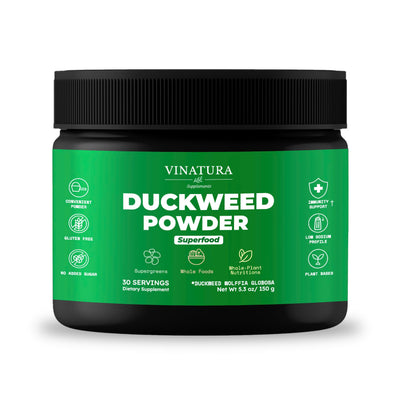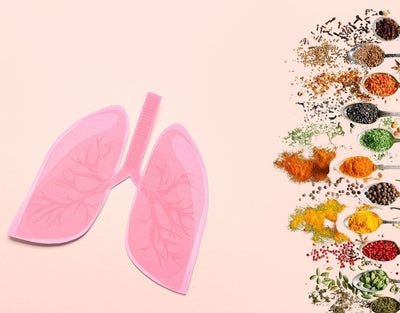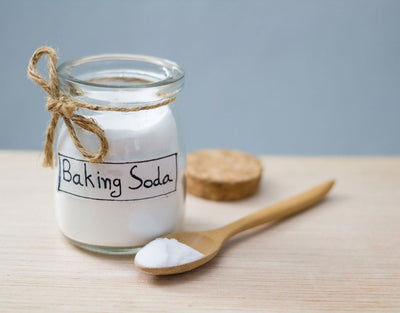
Does Spearmint Affect Breast Milk Supply?
On Reddit, many users discuss whether spearmint affects breast milk supply. The topic has raised some concern among mothers, though most opinions suggest that any impact would only occur when consuming spearmint in excessive amounts.* For a clearer understanding, see the detailed information below.
Before exploring further, please read the disclaimer located at the end of this webpage.
Does Spearmint Affect Breast Milk Supply?

There is currently no direct scientific evidence that spearmint (Mentha spicata) affects breast milk supply in humans.
However, within the same plant family, peppermint has been reported to reduce milk secretion — though this finding has only been demonstrated in animal studies and requires further human research for confirmation (Suzuki et al., 2020).
You may also read: Does Spearmint Tea Increase Breast Size?
Benefits Of Spearmint For Breastfeeding Mothers

When consumed in moderation, spearmint may offer several gentle benefits for breastfeeding mothers.
Soothing Cracked Nipples
Some research indicates that applying a gel containing menthol (a component of spearmint) can help soothe and improve cracked nipples, a common issue for new mothers [1].
Antibacterial and Antioxidant Effects
Spearmint contains phenolic compounds and essential oils (such as carvone and limonene) that have been reported to exhibit antibacterial and antioxidant activities [3].
These properties may help support overall health and reduce the risk of infections, although no direct studies have been conducted in breastfeeding women.
Supporting Digestive Health
Like many herbal teas, spearmint tea is known to help soothe the digestive system. It can help ease symptoms of bloating and gas for both the mother and potentially the baby through breast milk.
Aiding Relaxation
The postpartum period can be stressful. The calming aroma and gentle properties of spearmint can help a nursing mother relax, which is beneficial for both well-being and milk let-down.
How Do You Incorporate Spearmint Into Your Nursing Routine?

If you are considering incorporating Spearmint into your nursing routine, it is important to do so in moderation. Drinking one cup of Spearmint tea daily is generally considered safe for breastfeeding mothers. It is recommended to avoid consuming large amounts of Spearmint or using it as a substitute for water.
In addition to drinking Spearmint tea, you can also add fresh or dried Spearmint leaves to your meals, such as salads, smoothies, and soups. You can also use Spearmint essential oil for aromatherapy purposes to help reduce stress levels.
Learn more: How To Use Spearmint Leaves? 13 Ways Must-Try
Possible Side Effects And Precautions
While Spearmint is generally considered safe for nursing mothers, it is important to note that excessive consumption may have negative effects. According to the American Academy of Pediatrics (AAP), consuming large amounts of Spearmint tea can cause a decrease in milk supply and potentially lead to other side effects such as heartburn, diarrhea, or skin irritation.
Additionally, Spearmint should be avoided during the first trimester of pregnancy as it has been linked to potential miscarriage risks. It is also important to consult with a healthcare provider before consuming Spearmint if you have any underlying health conditions or take certain medications.
Read more: Benefits Of Spearmint On Skin: How To Use Spearmint For Acne?
Frequently Asked Questions
Can Spearmint Tea Be Used As A Substitute For Water?
No, it is not recommended. Proper hydration with water is essential for maintaining milk supply. Use spearmint tea as a supplemental beverage, not your main fluid source.
Are There Any Risks Associated With Consuming Spearmint During Pregnancy?
When consumed in moderation by the mother, there are no known significant risks for a breastfed infant. However, if you notice any changes in your baby's digestion or behavior, it's wise to stop consumption and consult a healthcare provider.
Are There Any Potential Risks For The Baby If A Nursing Mother Consumes Spearmint?
Some sources advise caution with large amounts of spearmint during the first trimester. Always consult with your doctor before using any herbs during pregnancy.
Conclusion
Does spearmint dry up breast milk? The evidence suggests no. Unlike high-menthol peppermint, spearmint is unlikely to reduce milk supply when consumed in moderation and may offer gentle benefits like aiding digestion and relaxation.
However, it is not a remedy for medical conditions like mastitis, which requires professional medical care. Always consult with a healthcare provider or lactation consultant before making significant changes to your diet while breastfeeding.
Related Article:
Spearmint For PCOS: Benefits & How To Use Spearmint Tea?
Does Spearmint Lower Testosterone?
Testimonial Disclaimer
*The testimonials presented on this website are provided by individuals based on their personal experiences with our products. These testimonials represent individual opinions and experiences, which may not be typical or applicable to all users of our products. Results may vary depending on a variety of factors, including individual health, lifestyle, and adherence to product usage instructions.References
- [1] Akbari, S. A. A., Alamolhoda, S. H., Baghban, A. A., & Mirabi, P. (2014). Effects of menthol essence and breast milk on the improvement of nipple fissures in breastfeeding women. Journal of Research in Medical Sciences : The Official Journal of Isfahan University of Medical Sciences, 19(7), 629–633. https://www.ncbi.nlm.nih.gov/pmc/articles/PMC4214021/
- [2] Suzuki, N., Yusaku Tsugami, Haruka Wakasa, Suzuki, T., Nishimura, T., & Kobayashi, K. (2020). Menthol from Mentha piperita Suppresses the Milk Production of Lactating Mammary Epithelial Cells In Vivo and In Vitro. Molecular Nutrition & Food Research, 64(24). https://doi.org/10.1002/mnfr.202000853
- [3] Cirlini, M., Mena, P., Tassotti, M., Herrlinger, K., Nieman, K., Dall’Asta, C., & Del Rio, D. (2016). Phenolic and Volatile Composition of a Dry Spearmint (Mentha spicata L.) Extract. Molecules, 21. https://doi.org/10.3390/molecules21081007.
Author

Product Disclaimer
Including an ingredient or study does not evaluate, endorse, or recommend any Vinatura product or any third-party product. Some ingredients discussed may not be used in any Vinatura product.
The content of the articles has not been evaluated by the Food and Drug Administration (FDA) and is not intended to promote or endorse any specific product. Any products sold on this website are not intended to diagnose, treat, cure, or prevent any disease.
Opinions and Endorsements
Any claims, statements, or opinions expressed in the articles are those of the author(s) and do not necessarily reflect the views or opinions of the manufacturers of the dietary supplement products. The products sold on this website are separate from the content of the articles and are not directly endorsed or associated with the information presented here.
Liability Disclaimer
The author(s) of the articles, website, and manufacturers of the dietary supplement products do not assume any liability for any potential consequences arising from the use of the information provided in the articles. Ingredient effects, dosages, and safety vary by individual, formulation, and context; some ingredients interact with medications or may be unsuitable during pregnancy or lactation. It is recommended that individuals consult with a qualified healthcare professional before making any dietary or lifestyle changes, including the use of dietary supplements.
Product Usage
Please refer to the product labels and packaging for specific usage instructions and guidelines for the dietary supplement products sold on this website.
Customer Support
For any concerns or questions regarding the dietary supplement products, please contact our customer support team, who will be more than happy to assist you.





Leave a Comment
Be the first to comment.
What do you think?